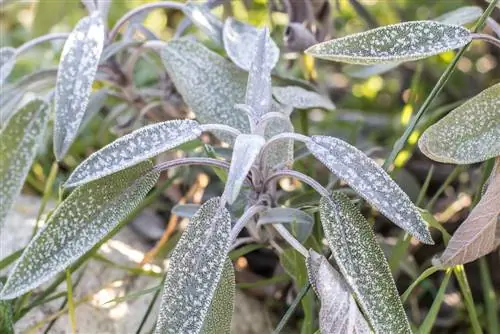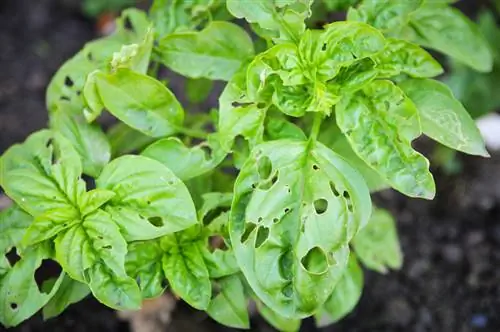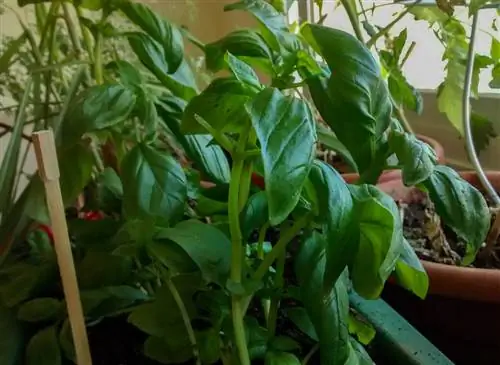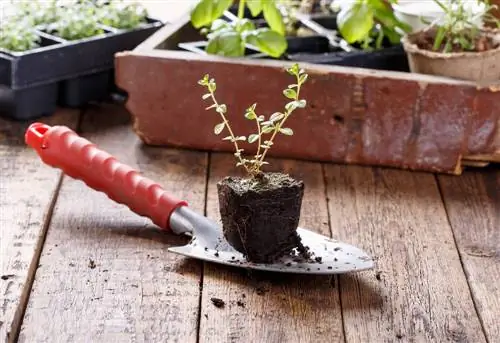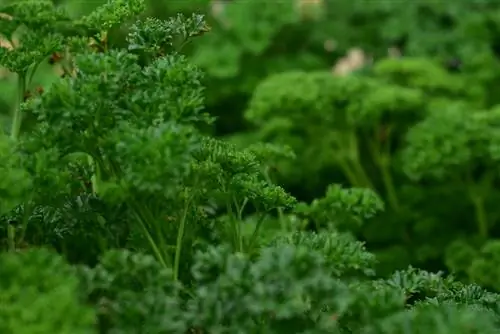- Author admin leonars@hobbygardeners.com.
- Public 2023-12-16 16:46.
- Last modified 2025-01-23 11:21.
Most herbs survive the winter outdoors without any problems in our latitudes. Even subzero temperatures don't harm them. However, in particularly harsh locations, some Mediterranean immigrants are happy about light winter protection measures.
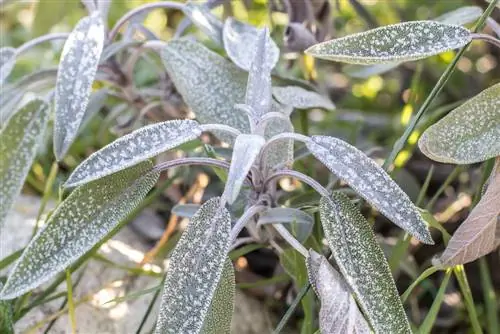
How to protect herbs in the garden in winter?
To protect herbs in winter, cover sensitive varieties such as curry herb, tarragon, thyme and sage with straw, leaves or spruce branches. Exotic herbs such as rosemary, lemon verbena, bay leaf or basil should be overwintered in a cool, bright room and watered sparingly.
Winter protection for sensitive herbs
Curry herb, tarragon and some types of thyme and sage are best covered with an insulating layer of straw or leaves and spruce branches to protect them from frost and especially from the winter sun.
Winter herbs properly in the house
Exotics and a few cold-sensitive southerners, however, must be put away before the first frosts. These include rosemary, lemon verbena, bay leaf, fragrant geraniums, various types of fruit sage, basil and real tropical children such as ginger or turmeric. Most of them overwinter best in bright, cool rooms (for example in the winter garden, in the stairwell or in bright basements) and are only watered very sparingly during this time. Tropical inhabitants, on the other hand, can stay warm all year round.
Tip
Evergreen subshrubs such as sage, thyme, hyssop or rue can also be harvested in winter - the frost does not affect the aroma. Other herbs, however, can be cultivated on the windowsill.

